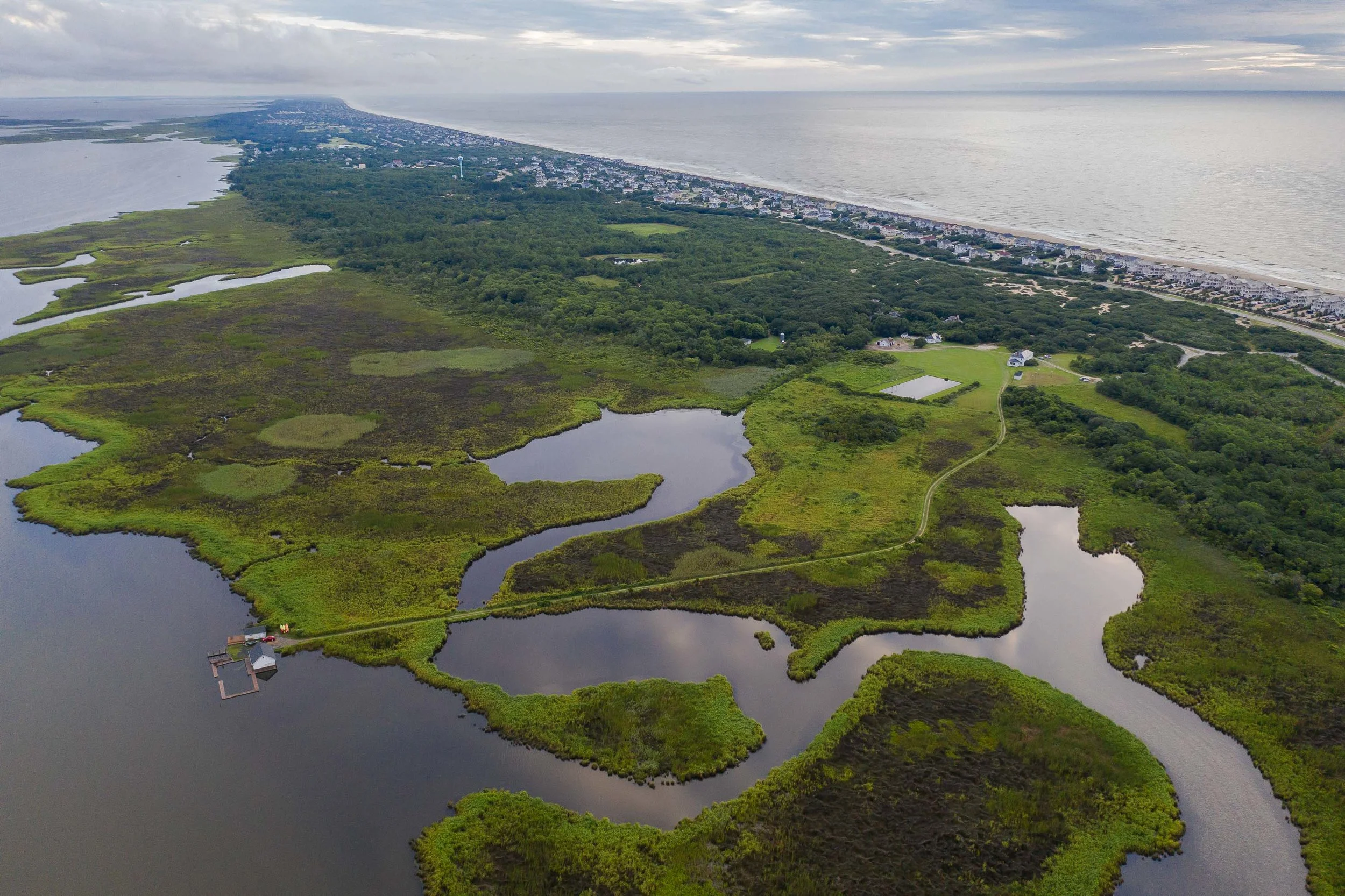
Homes occupy a narrow strip of the Outer Banks wedged between the Atlantic Ocean and the Currituck Sound near the Pine Island sanctuary. Pine Island's marshlands make it an ideal spot to test nature-based defenses against sea-level rise.

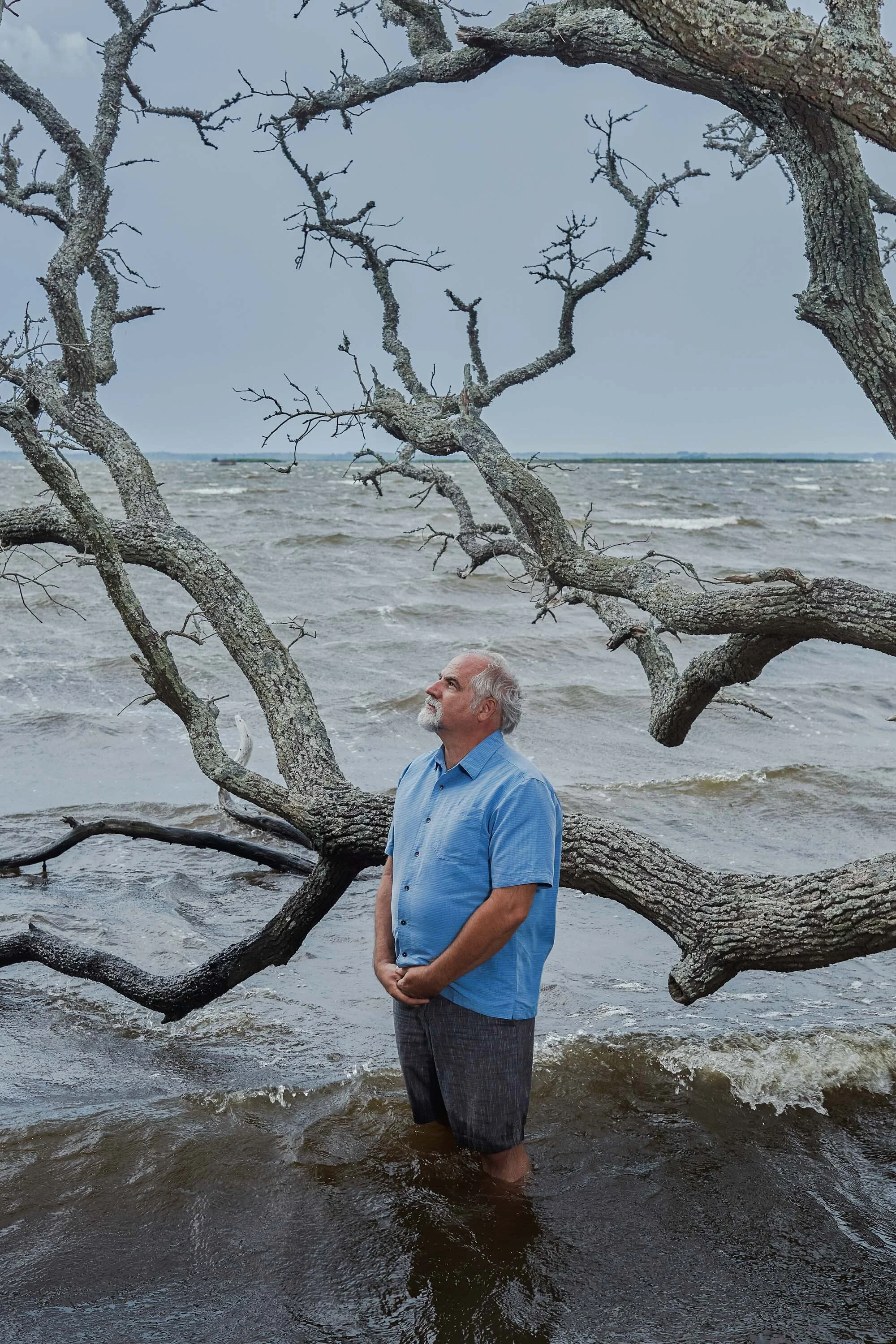
Robbie Fearn, center director at Pine Island, stands beside a live oak that was killed by saltwater intrusion from rising seas.
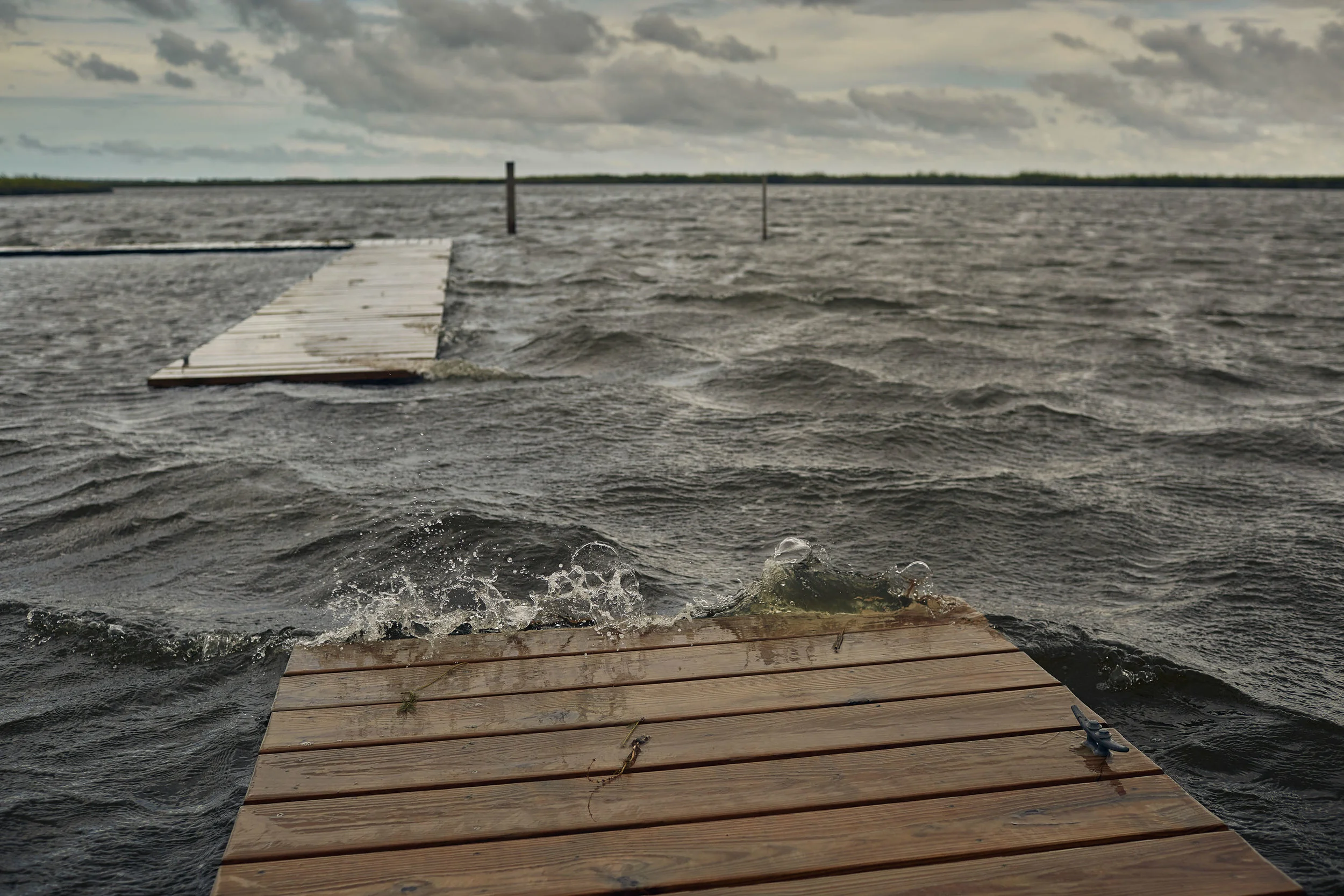
Sea level is rising along the coast of North Carolina, and the docks at the sanctuary have already been raised 14 inches. For several days in July 2019, a southwest wind blew across the #Currituck Sound and flooded them completely.
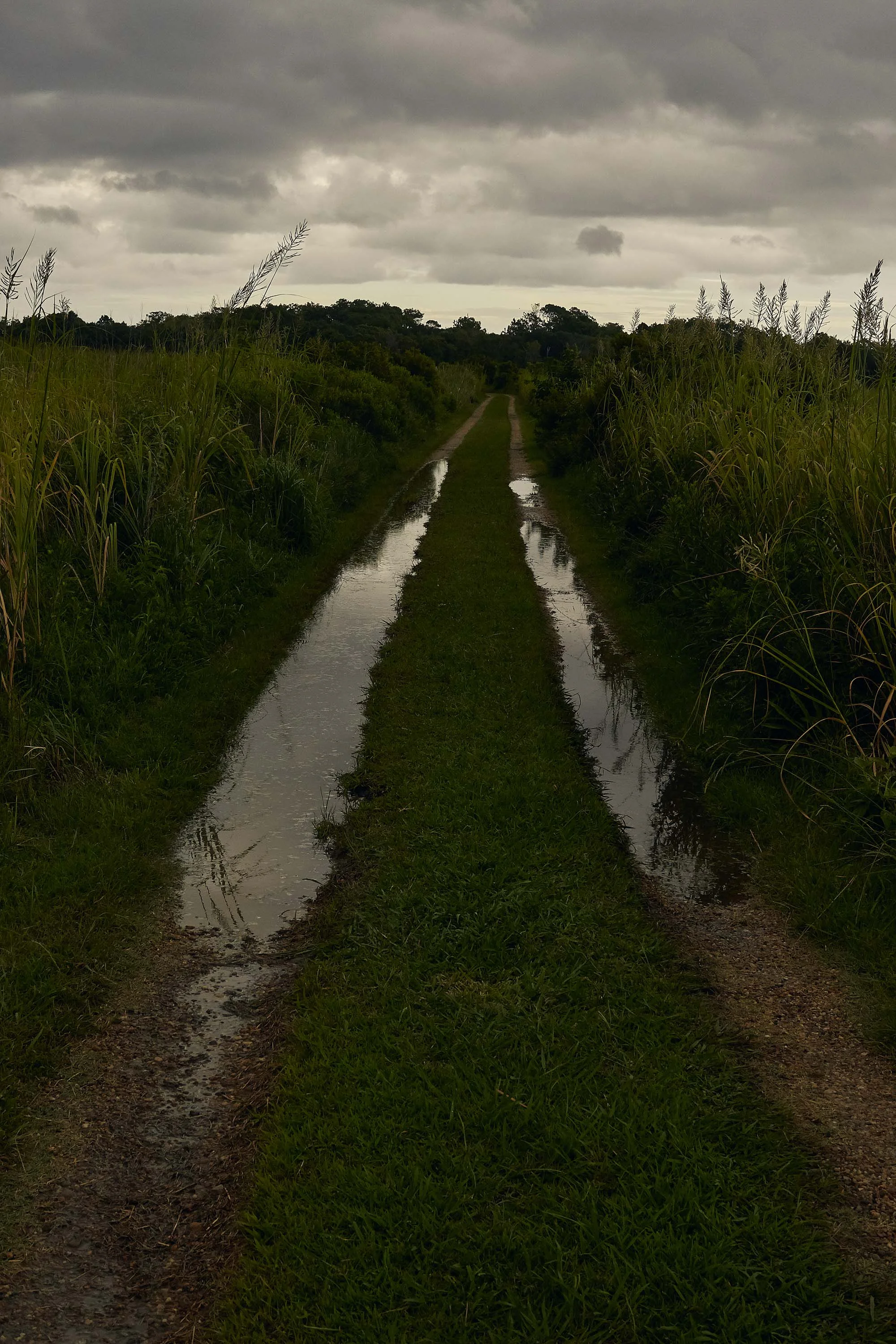
Flood waters from the sound crept into the marsh road.
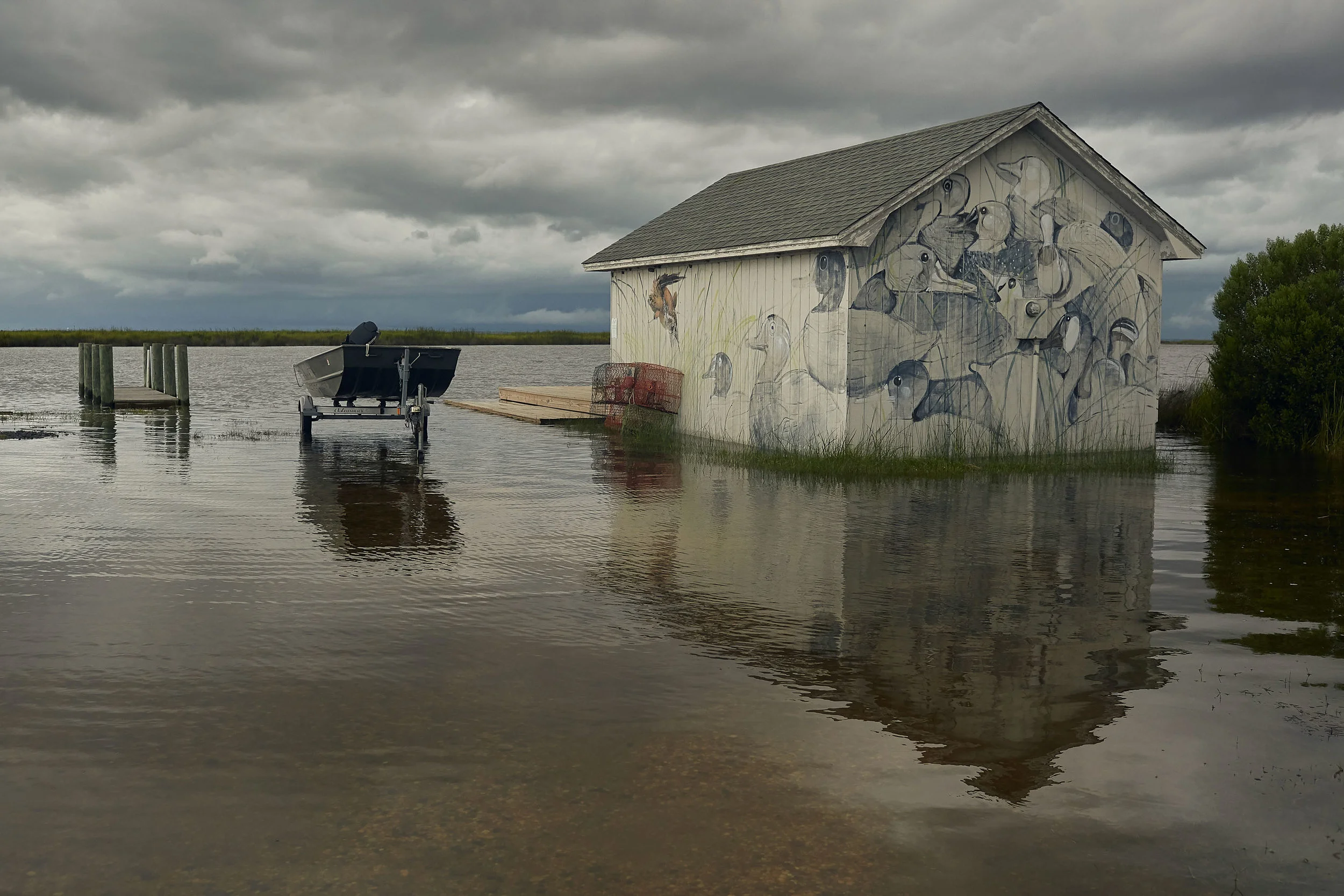
A boathouse in a flood-prone part of Pine Island recalls the area's waterfowl-hunting heritage.
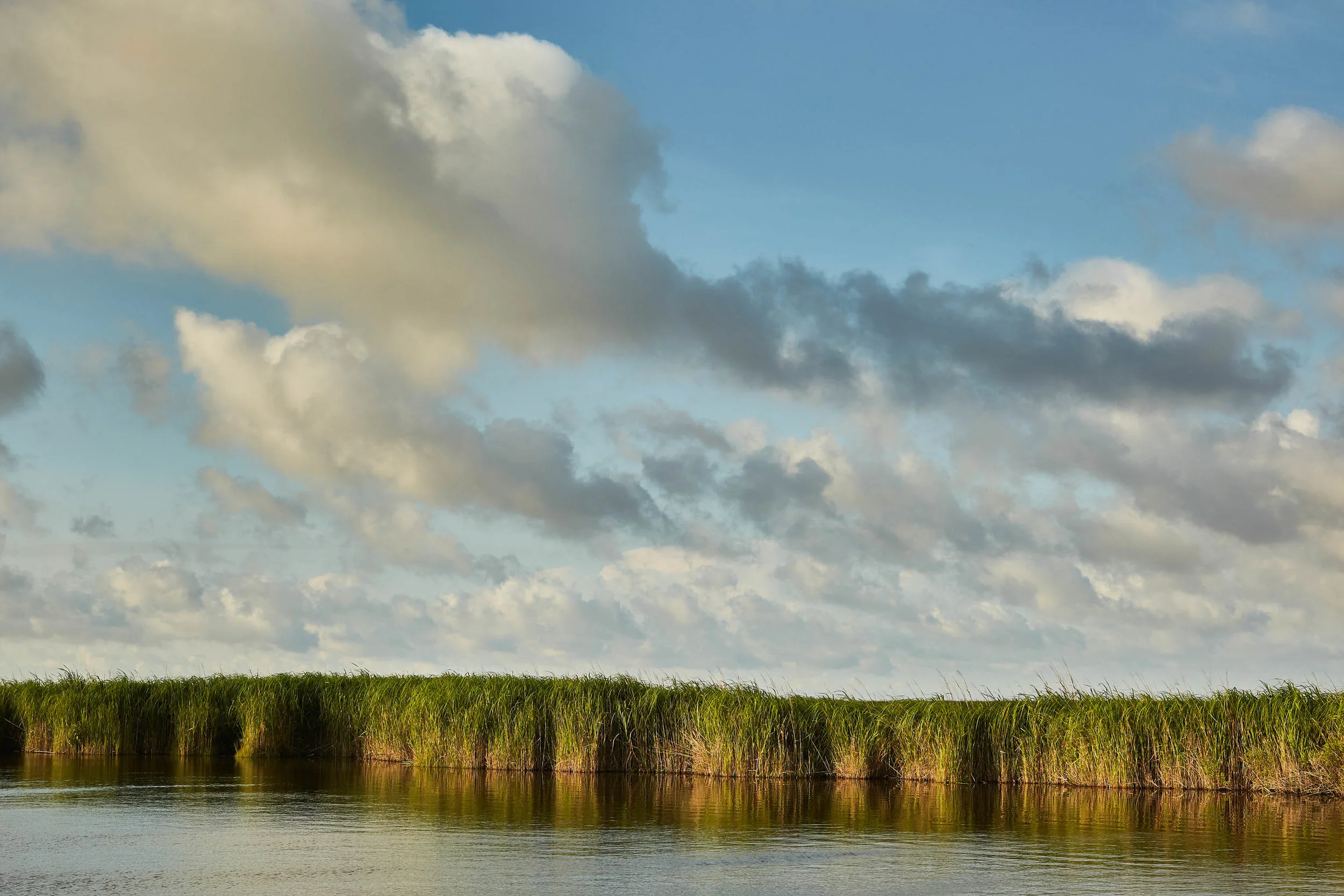
Pine Island's coastal marshes provide a buffer against rising seas; experts say saving them is key to protecting the sanctuary's heritage and its future.
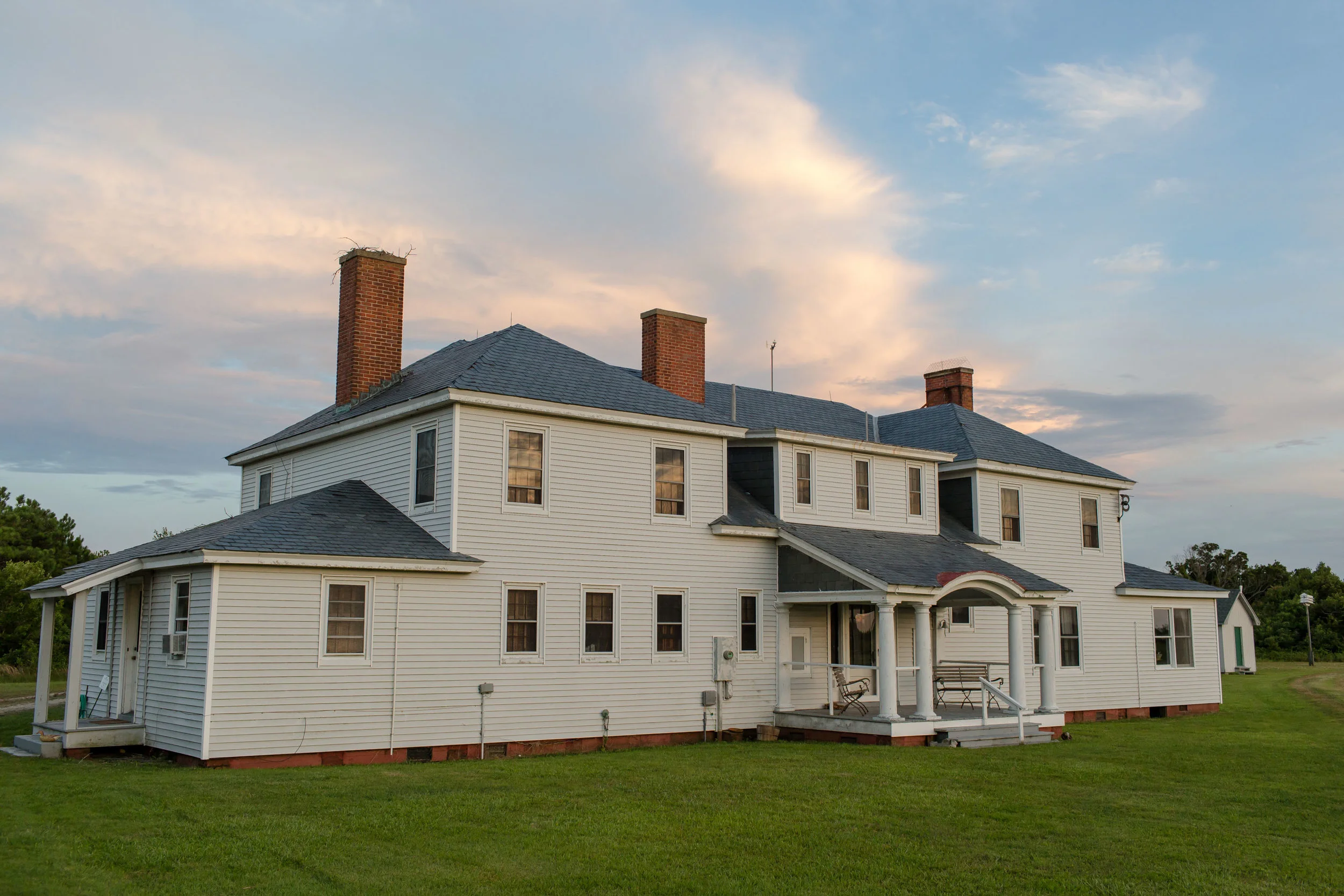
Plans for Pine Island's future include elevating the 1913 hunting lodge to save it from rising seas.
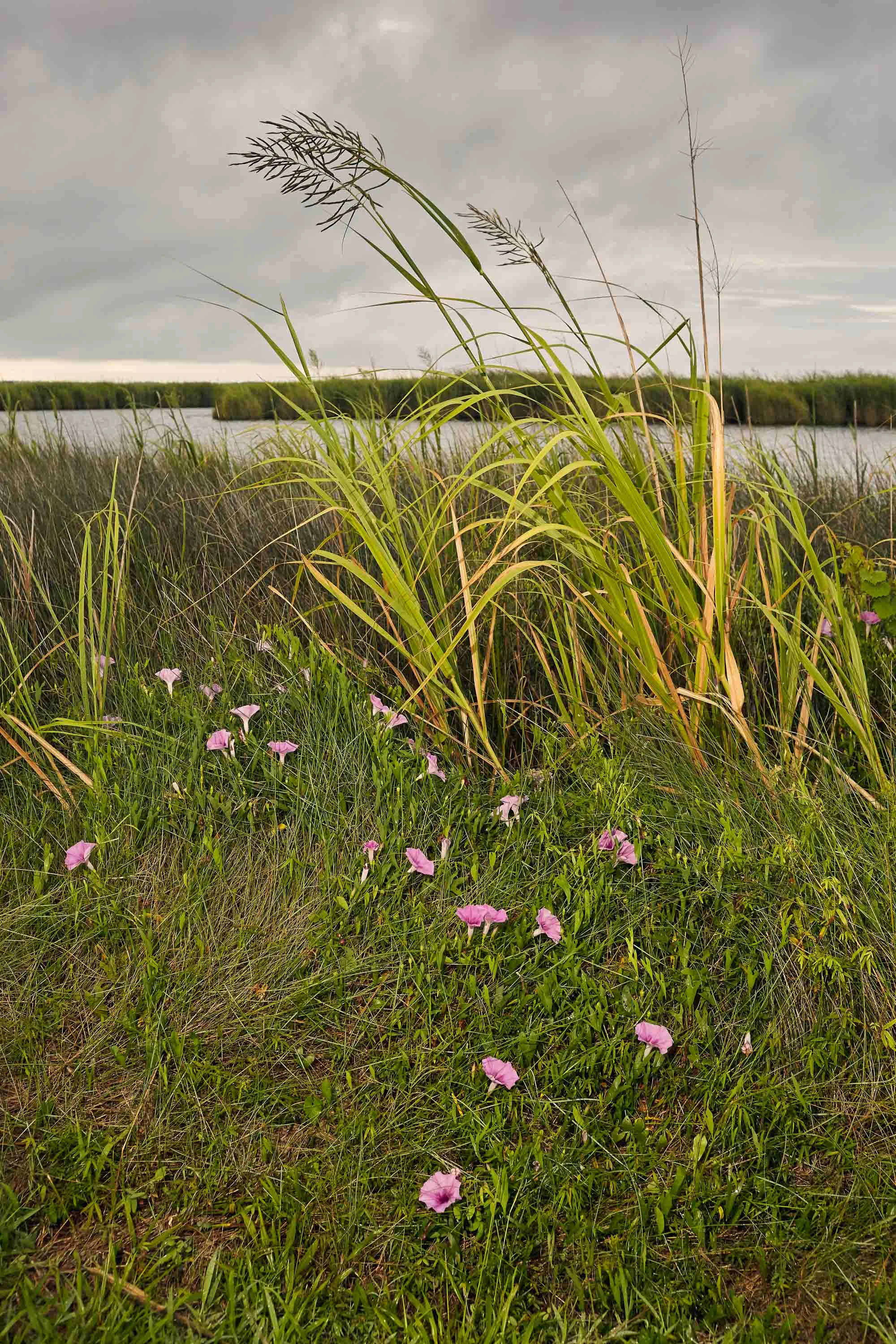
Morning glories and marsh grasses and other vegetation provide a buffer against the Currituck Sound and keep flood waters from inundating the sanctuary.
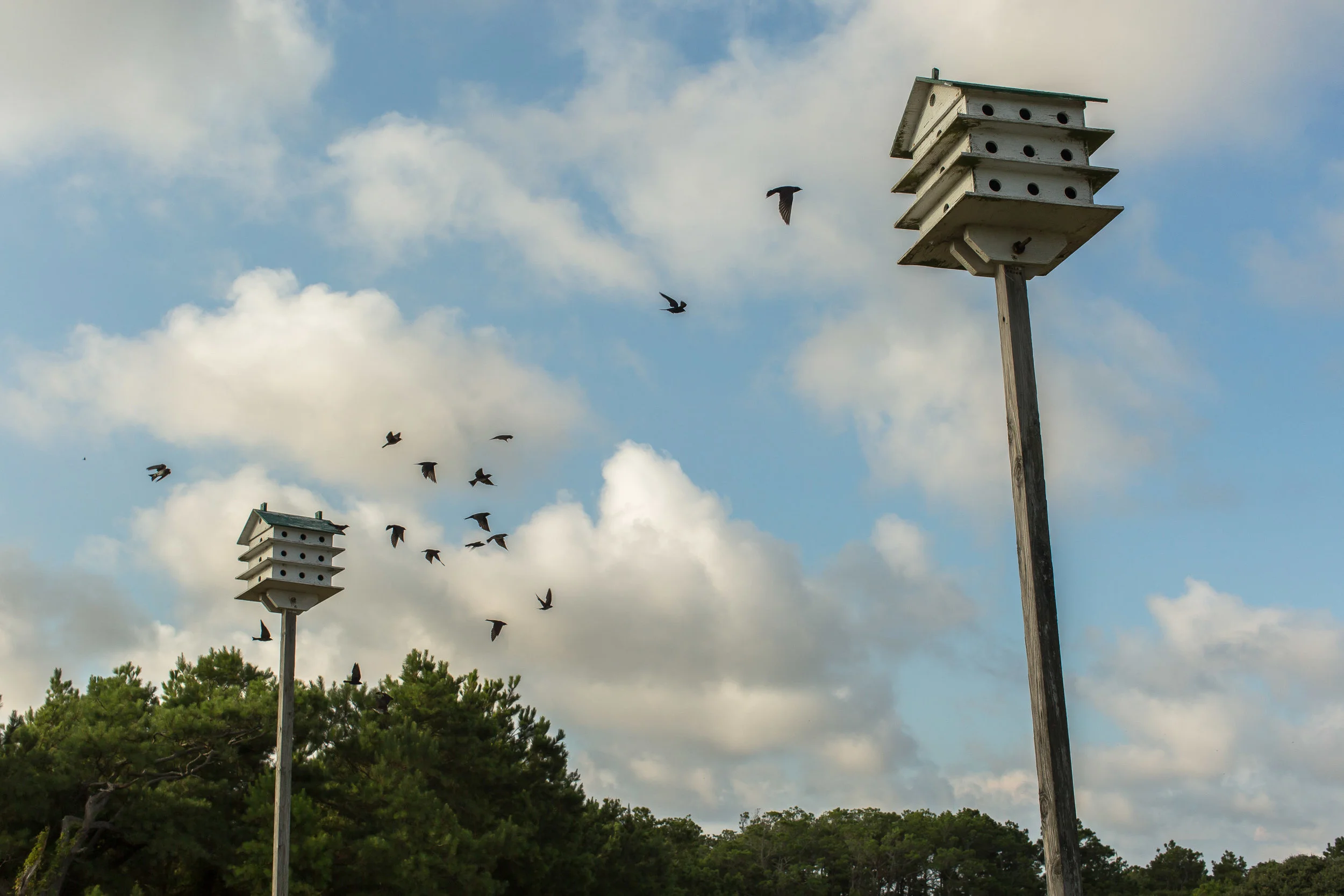
Purple Martins flit around houses built for them at Pine Island.
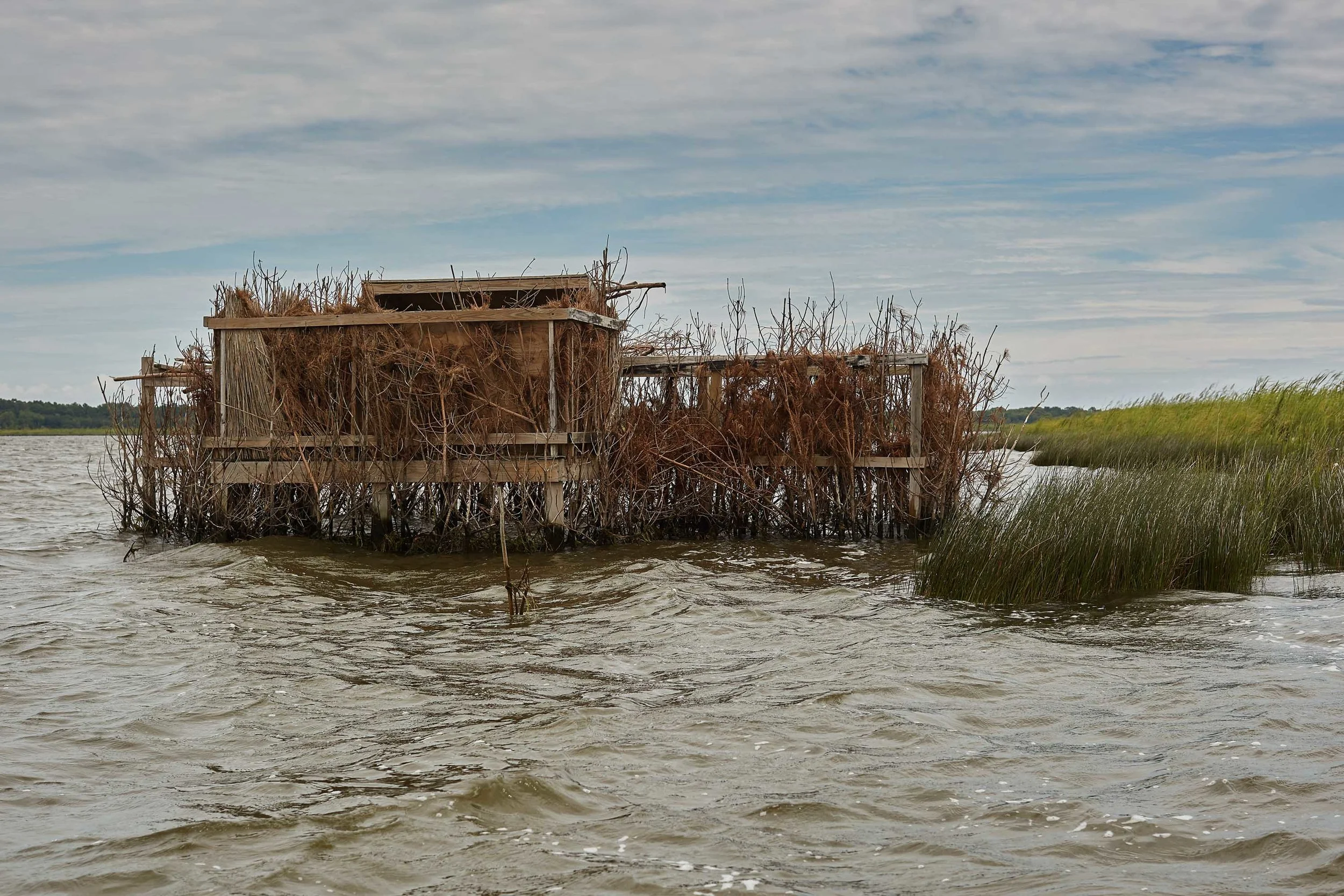
Duck blinds at Pine Island, still used for carefully managed hunts, hearken back to days when hundreds of thousands of waterfowl used the Currituck Sound in fall and winter.
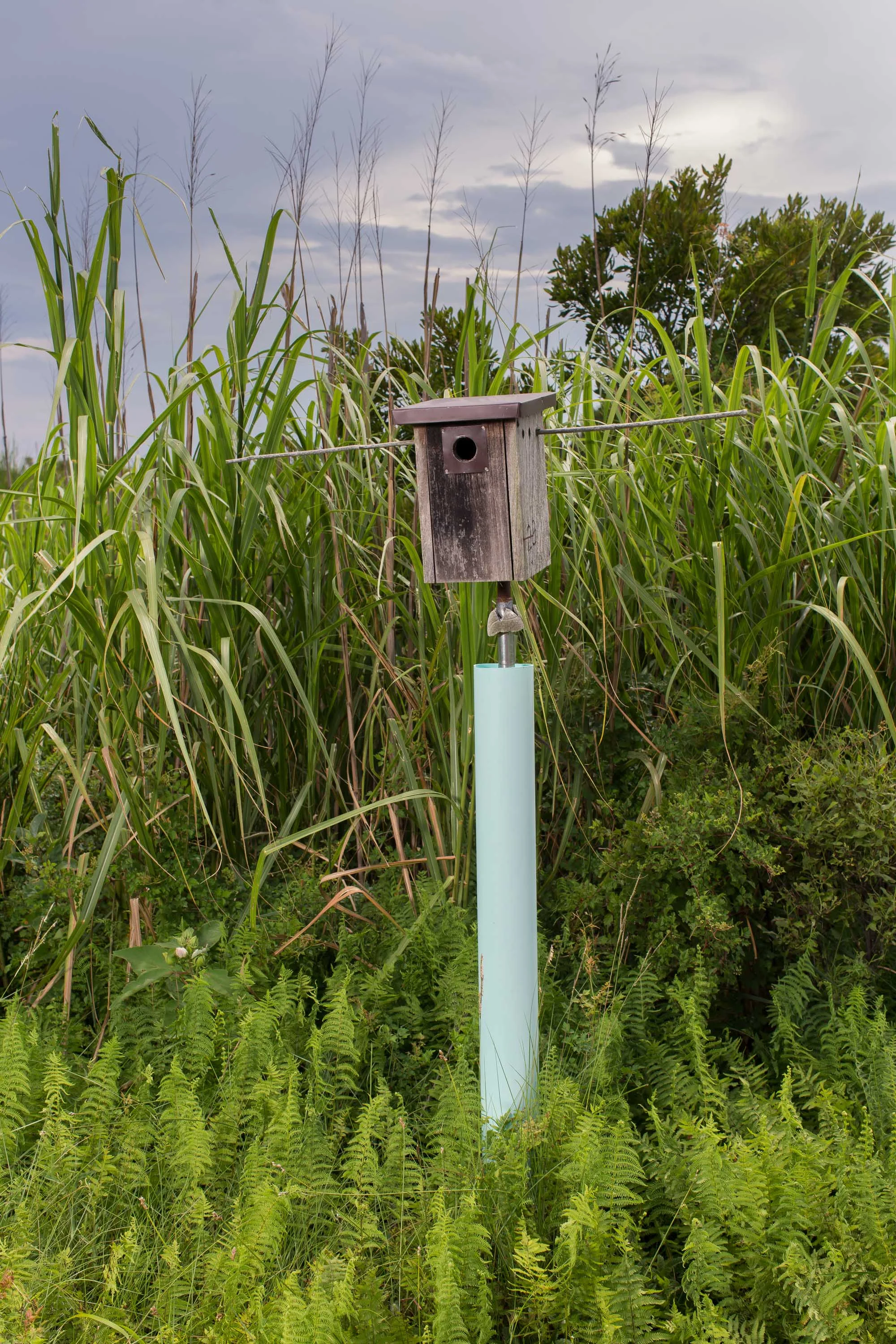
Bird houses provide shelter for some of the nearly 200 species of birds that live in the sanctuary.
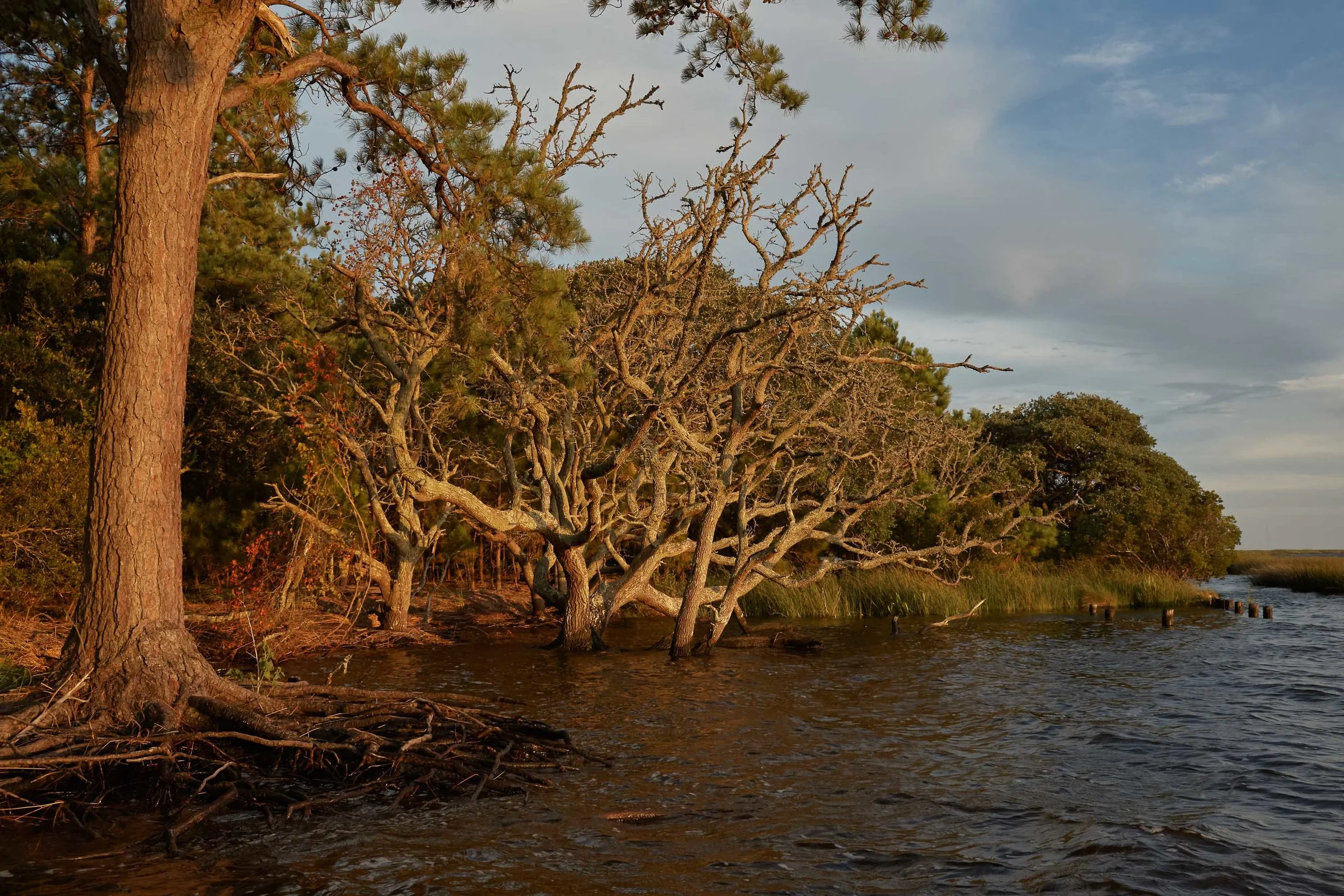
Live oaks drowned by saltwater intrusion and erosion along the Sound at Pine Island.
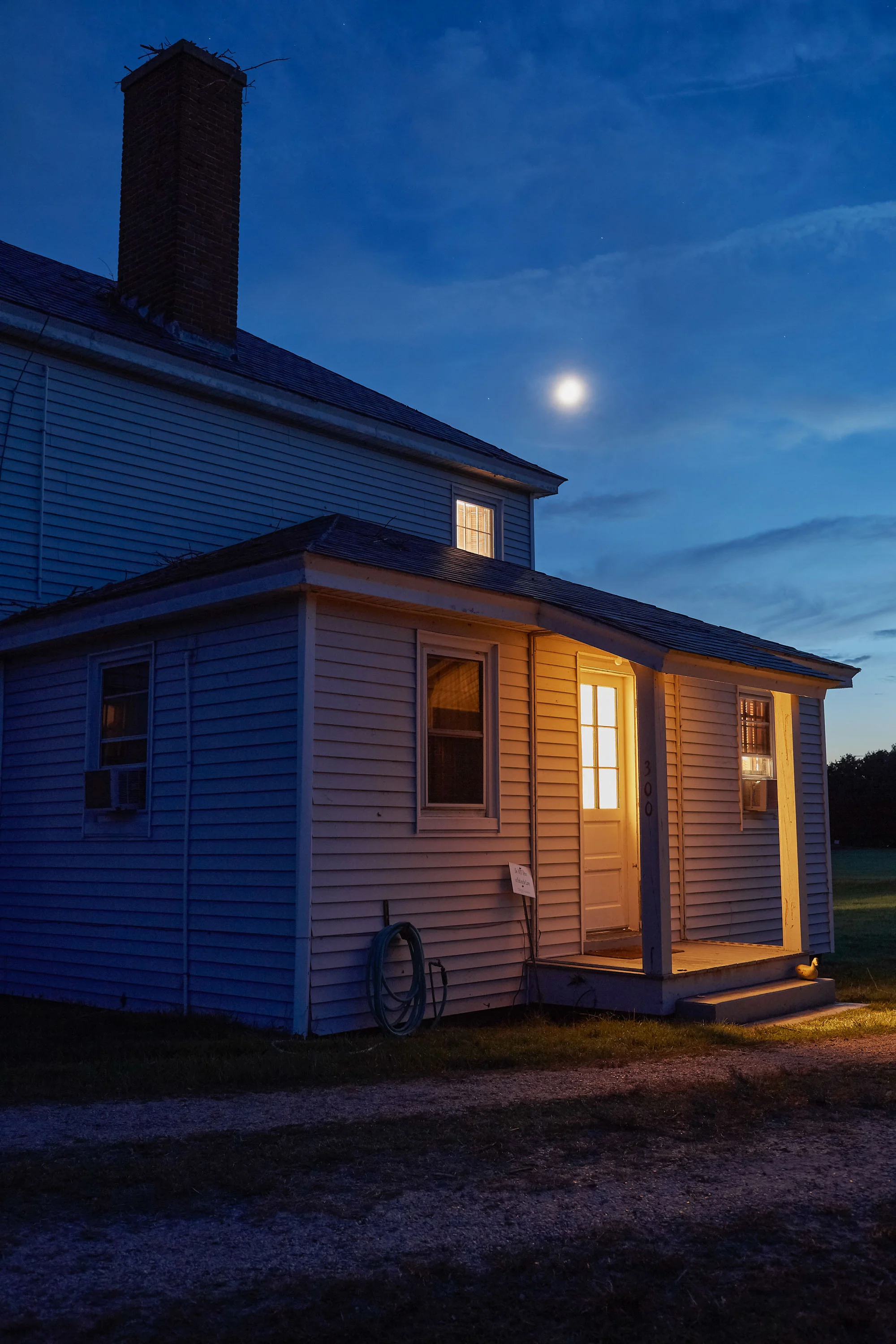
The historic hunting lodge at the Donal C. O’Brien Sanctuary and Audubon Center at Pine Island at twilight.

The lead spread of this work as it appeared in the Fall 2019 Special Climate issue of Audubon Magazine.

An inside spread of this work as it appeared in the Fall 2019 Special Climate issue of Audubon Magazine.
















Homes occupy a narrow strip of the Outer Banks wedged between the Atlantic Ocean and the Currituck Sound near the Pine Island sanctuary. Pine Island's marshlands make it an ideal spot to test nature-based defenses against sea-level rise.
Robbie Fearn, center director at Pine Island, stands beside a live oak that was killed by saltwater intrusion from rising seas.
Sea level is rising along the coast of North Carolina, and the docks at the sanctuary have already been raised 14 inches. For several days in July 2019, a southwest wind blew across the #Currituck Sound and flooded them completely.
Flood waters from the sound crept into the marsh road.
A boathouse in a flood-prone part of Pine Island recalls the area's waterfowl-hunting heritage.
Pine Island's coastal marshes provide a buffer against rising seas; experts say saving them is key to protecting the sanctuary's heritage and its future.
Plans for Pine Island's future include elevating the 1913 hunting lodge to save it from rising seas.
Morning glories and marsh grasses and other vegetation provide a buffer against the Currituck Sound and keep flood waters from inundating the sanctuary.
Purple Martins flit around houses built for them at Pine Island.
Duck blinds at Pine Island, still used for carefully managed hunts, hearken back to days when hundreds of thousands of waterfowl used the Currituck Sound in fall and winter.
Bird houses provide shelter for some of the nearly 200 species of birds that live in the sanctuary.
Live oaks drowned by saltwater intrusion and erosion along the Sound at Pine Island.
The historic hunting lodge at the Donal C. O’Brien Sanctuary and Audubon Center at Pine Island at twilight.
The lead spread of this work as it appeared in the Fall 2019 Special Climate issue of Audubon Magazine.
An inside spread of this work as it appeared in the Fall 2019 Special Climate issue of Audubon Magazine.
